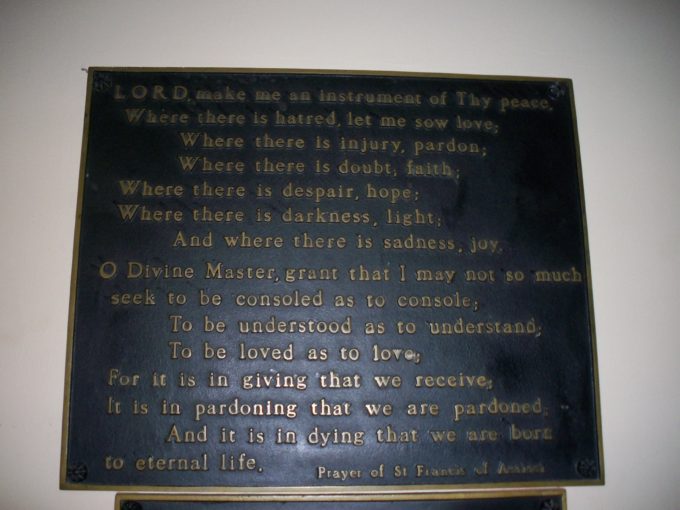
Wednesday, 22 July 2020
But I want to remind you, though you once knew this, that the Lord, having saved the people out of the land of Egypt, afterward destroyed those who did not believe. Jude -5
Jude now turns to a list of historical events concerning God’s judgment in order to show that He is very consistent in taking care of wickedness. Because of this, those mentioned in the previous verse “who were marked out for this condemnation” can expect no less because of their faithless, evil actions. Understanding this, he begins with, “But I want to remind you.” He is making a contrast between those he mentioned and those who conduct which is right and proper.
This sets the tone, and it is in line with what he said in verse 3 about it being necessary to exhort his audience to contend for the faith. In reminding them of the past events, they will be prepared to reject those who stray from what is proper, and they will be able to keep themselves in line with the truth as well. With this in mind, he next says, “though you once knew this.”
The translation, following the KJV, is entirely incorrect. The intent of his words doesn’t mean they knew what he is going to say and that they had forgotten. The verb is a perfect participle, and the word “once” signifies “once for all.” It should say something like, “though you know all things once for all.” Or more simply stated, “although you already know this.” Jude is simply stirring up their memory concerning the events he will present.
From there, he next says, “that the Lord.” It is interesting that some manuscripts here say “Jesus.” Thus, it is a clear reference to the fact that Jesus was clearly considered to be the incarnation of Yehovah of the Old Testament. As manuscripts vary, this can be argued against, but it is a point that was understood even at the earliest times of the church.
It is He, the Lord, who Jude continues to speak about, saying, “having saved the people out of the land of Egypt.” There is no article before “people.” It says, “a people,” thus signifying the entire body known as Israel. The account is found in the book of Exodus. The Lord fulfilled His promise to Abraham to bring his descendants out of bondage and bring them to the land of Canaan. He faithfully accomplished the first part for them. However, Jude next reminds his audience that “afterward destroyed those who did not believe.”
The Greek more precisely reads, “in the second place destroyed those who did not believe.” Jude is giving a sequence of events. In the first act, mercy was given to the people, but that was followed with the second action of destroying them. And, as it says, it was upon “those who did not believe.” The people were faithless, and the sin cost them their lives. As the account says –
“Then the Lord said to Moses: ‘How long will these people reject Me? And how long will they not believe Me, with all the signs which I have performed among them?’” Numbers 14:11
After that, the sentence was pronounced –
“The carcasses of you who have complained against Me shall fall in this wilderness, all of you who were numbered, according to your entire number, from twenty years old and above. 30 Except for Caleb the son of Jephunneh and Joshua the son of Nun, you shall by no means enter the land which I swore I would make you dwell in. 31 But your little ones, whom you said would be victims, I will bring in, and they shall know the land which you have despised. 32 But as for you, your carcasses shall fall in this wilderness.” Numbers 14:29-32
The people did not believe the Lord, and for their faithlessness, they were destroyed.
It should be noted that Jude will list three sins which bring about God’s judgment. This is the same as 2 Peter 2 where Peter does the same thing. They speak of the same types of things, but in the case of the three judgments Peter mentions, they were chronological in nature – the angels, then the Flood of Noah, and then Sodom and Gomorrah. Jude changes the order and lists them categorically – the wilderness generation of Israel who departed from Egypt, the angels, and then Sodom and Gomorrah. These correspond to unbelief, pride, and sexual immorality.
Understanding this categorical listing will help keep the reader from coming to improper conclusions concerning other passages in the Bible.
Life application: Out of the entire congregation of Israel 20 years old and older, only two people entered the Promised Land because of their lack of faith.
Jude reminds us that we have the word of the Lord in its fullness in the Person and work of Jesus and in the Bible which records His deeds. Therefore, to disbelieve what God has so carefully prepared for us will also lead to eventual destruction. Rather than the “Promised Land” of heaven, there will be the eternal destruction of a self-chosen hell. The consequences for lacking faith are immense.
O God, give us faith to believe the precious word You have blessed us with. Also, give us understanding in what it contains so that our doctrine will be pure and our understanding of Jesus and His workings will be correct. Thank You for all You have done for us. Please keep us forever reminded of those things. This we pray to Your glory. Amen.




